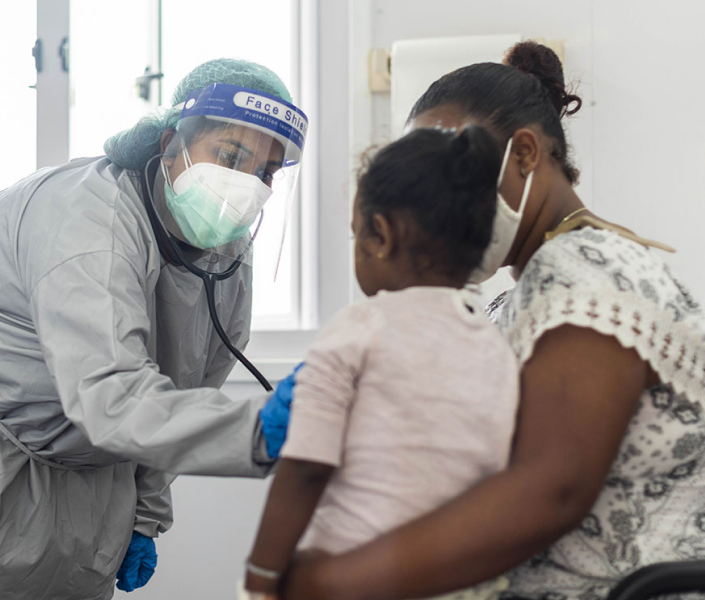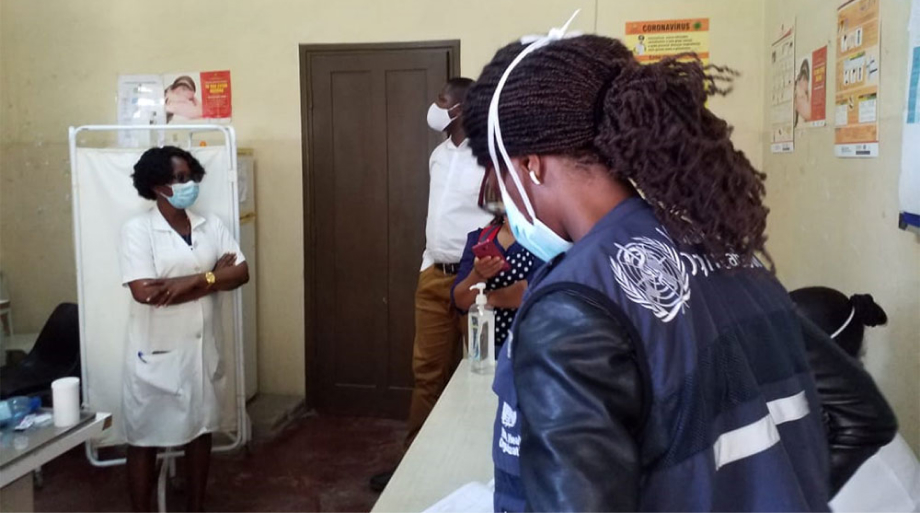Progress report African region 21 - 2.1. The Response

WHO AFR’s COVID-19 Strategic Preparedness and Response Plan (SPRP) for 2021 is designed based on the ‘whole of organization approach.’ Guided by a coordination structure and 11 technical pillars, an information network attached to its global presence, 47 country offices in Africa, and strong partnerships, it builds upon the experience of the first year of the COVID-19 global pandemic response and management, and previous epidemics or pandemics.
Addressing multiple crises in Mozambique
(a first person account)
The COVID-19 crisis hit Mozambique at a moment when we were still recovering from two deadly cyclones that struck the country in early 2019. As part of the Emergency Preparedness and Response Cluster, we were the first on the ground and I was particularly impressed by the efficiency and professionalism of the three levels of the Organization to provide timely support to the country. I really felt proud to be part of the Organization. By the time the COVID-19 pandemic was declared, I had a sense of what an emergency mode meant, but I was far from imagining the level of stress we were about to deal with, especially at the WHO country office. The recurrence of emergencies (floods, cholera outbreaks, drought, and cyclones, among many others) often directs our attention to humanitarian needs rather than preparedness. This could partly explain why we are sometimes perceived as an organization that typically reacts to, instead of preventing events and preparing to mount an adequate response.

WHO / Mozambique – Country Office
Fortunately, this perception did not last, and the role of the WHO Country Office leadership was instrumental in supporting the country and partners to define the contours of the COVID-19 preparedness and response. Despite many challenges at the beginning, our ability to catalyse collective action by different actors in-country emerged stronger, and we got over the hurdle of the first year of the crisis. Notwithstanding our best efforts, a combination of factors, led by popular fatigue leading to poor adherence to public health and social measures, has brought us to the brink of a third wave. The Delta variant has also come down hard in southern Africa, making the virus much stronger and its spread easier. However, I remain confident that lessons from previous waves, coupled with a renewed determination on the part of the country’s authorities, will be fundamental to curb virus transmission, with a focus on activities tailored to the lowest demographic level.
As one famous Prime Minister said, ‘never let a good crisis go to waste.’ It is my hope that the COVID-19 crisis will spur us in the right direction and initiate a real conversation on how to improve our health system.
Sinésia Lucinda João Sitão
Infectious Hazard Management Officer
WHO-Mozambique




